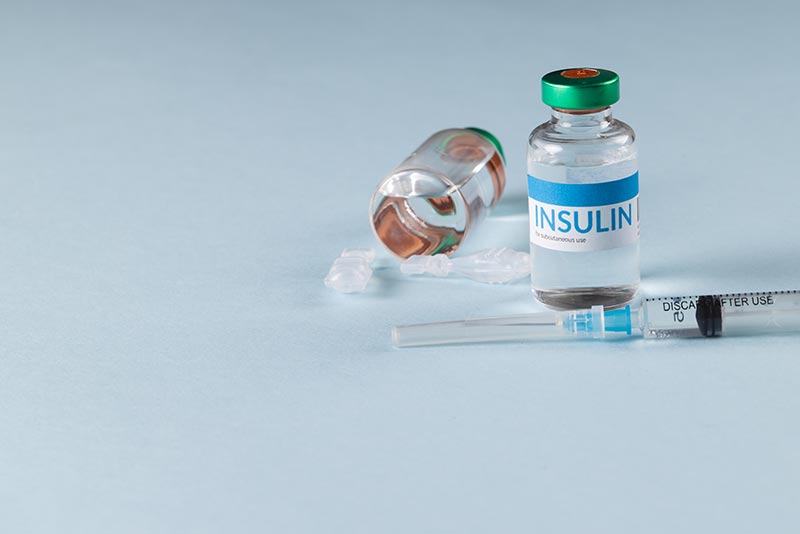Insulin resistance is a condition where the body’s cells become less responsive to insulin, a hormone produced by the pancreas that helps regulate blood sugar (glucose) levels. Normally, insulin allows cells to absorb glucose from the bloodstream to use it for energy. However, in insulin resistance, the cells don’t respond effectively to insulin, leading to higher levels of glucose in the blood.
Insulin resistance is a condition where your body’s cells become less responsive to insulin, a hormone produced by your pancreas to regulate blood sugar levels.
How it works:
- Normal function: When you eat, your body breaks down the food into glucose. Insulin helps move this glucose from your bloodstream into your cells for energy.
- Insulin resistance: In people with insulin resistance, the cells in your muscles, fat, and liver don’t respond effectively to insulin. This means that glucose builds up in your bloodstream instead of being used for energy.
Causes:
- Lifestyle factors: Obesity, lack of physical activity, and a diet high in unhealthy fats and sugars can contribute to insulin resistance.
- Genetics: Some people may have a genetic predisposition to insulin resistance.
- Hormonal factors: Hormonal imbalances can also play a role.
Consequences:
- Prediabetes and Type 2 diabetes: Over time, insulin resistance can lead to prediabetes and eventually Type 2 diabetes.
- Health complications: High blood sugar levels can increase your risk of heart disease, stroke, kidney disease, and other health problems.
Treatment and prevention:
- Lifestyle changes: A healthy diet, regular exercise, and weight management can help improve insulin sensitivity.
- Medication: In some cases, medication may be necessary to manage blood sugar levels.
If you’re concerned about insulin resistance or have symptoms like excessive thirst, frequent urination, or unexplained weight loss, it’s important to consult with a healthcare provider.
Here’s how the process works in detail:
- Normal Insulin Function: After eating, glucose levels in the blood rise. The pancreas releases insulin, which binds to receptors on the surface of cells, signaling them to absorb glucose. This helps lower blood sugar back to a normal level.
- Insulin Resistance: In this condition, cells (like muscle, fat, and liver cells) become less sensitive to the effects of insulin. As a result, the body requires more insulin to help glucose enter cells. The pancreas compensates by producing more insulin. Over time, this can lead to elevated insulin levels (hyperinsulinemia) and, eventually, to high blood sugar levels if the pancreas can no longer keep up.
- Consequences: When insulin resistance develops, it can lead to prediabetes, type 2 diabetes, and other metabolic problems, including weight gain, high blood pressure, and an increased risk of heart disease.
Common risk factors for insulin resistance include:
- Obesity, especially abdominal fat
- Lack of physical activity
- Unhealthy diet (high in refined carbohydrates and sugars)
- Family history of type 2 diabetes
- Certain medical conditions like polycystic ovary syndrome (PCOS) and nonalcoholic fatty liver disease
Early management through lifestyle changes (like improving diet, increasing physical activity, and weight loss) can often help reverse or reduce insulin resistance.

